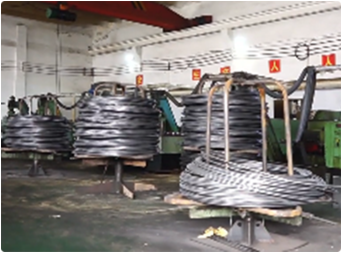Oct . 13, 2024 14:38 Back to list
Hexagonal Bolt and Nut Specifications and Applications for Various Projects
The Essentials of Hex Bolt and Nut A Comprehensive Overview
Hex bolts and nuts are fundamental components in various industries, playing a crucial role in the assembly and fastening of materials and structures. From construction sites to automotive manufacturing, these fasteners provide the strength and reliability required to ensure structural integrity and safety.
What are Hex Bolts?
Hex bolts are a type of fastener characterized by their hexagonal (six-sided) heads. They are typically made from various materials, including steel, stainless steel, or alloys, which determine their strength and corrosion resistance. Hex bolts are designed to be used with specific nuts, washers, and in many instances, they are paired with a socket or wrench due to their head shape, making tightening and loosening more convenient.
One of the significant advantages of hex bolts is their versatility. They can be used in numerous applications, including assembling machinery, building frameworks, and securing heavy equipment. The dimensions, grading, and material composition of hex bolts can vary, allowing for tailored solutions for different strength requirements and environmental conditions.
The Role of Hex Nuts
Hex nuts complement hex bolts and serve as a critical component in securing connections. They are also six-sided and come in various sizes and grades, matching the corresponding bolts’ specifications. When a hex bolt is inserted through a pair of materials that need to be fastened together, a hex nut is threaded onto the bolt’s opposite end. Tightening the nut pulls the bolt through the materials, creating a clamping force that holds them securely in place.
The choice of nut is just as vital as that of the bolt. Factors to consider include the material (such as carbon steel or stainless steel), the finish (zinc-plated, plain, etc.), and the nut's strength grade, which should match the bolt's specifications to ensure optimal performance.
Advantages of Using Hex Bolts and Nuts
hex bolt nut

1. Strength and Reliability Hex bolts and nuts are engineered to withstand significant loads and stresses. Their design ensures that they maintain a secure grip, even under challenging conditions.
2. Ease of Assembly The hexagonal shape allows for easy installation and removal using standard tools. This feature makes them convenient in both manufacturing and maintenance environments.
3. Versatility Available in various sizes, materials, and grades, hex bolts and nuts can be used in a wide range of applications, from light-duty tasks to heavy-duty industrial projects.
4. Accessibility Due to their popularity, hex bolts and nuts are readily available in hardware stores and online, making it easy for consumers and professionals to procure the necessary components for their projects.
Considerations When Choosing Hex Bolts and Nuts
When selecting hex bolts and nuts, one should consider factors like load requirements, environmental conditions, and compatibility with the materials being fastened. It is crucial to match the strength grades of the bolt and nut to avoid failure or loosening over time. Furthermore, it may be beneficial to use washers to distribute the load and prevent damage to the material being fastened.
Conclusion
In summary, hex bolts and nuts are indispensable components in countless applications, known for their strength, reliability, and versatility. Understanding their specifications and the role they play in fastening technology is vital for engineers, builders, and DIY enthusiasts alike. Whether constructing a skyscraper, repairing a vehicle, or assembling furniture, the proper selection and installation of hex bolts and nuts can make all the difference in achieving a secure and durable outcome. As industries continue to advance, these simple yet effective fasteners will remain at the heart of mechanical assembly and construction practices.


